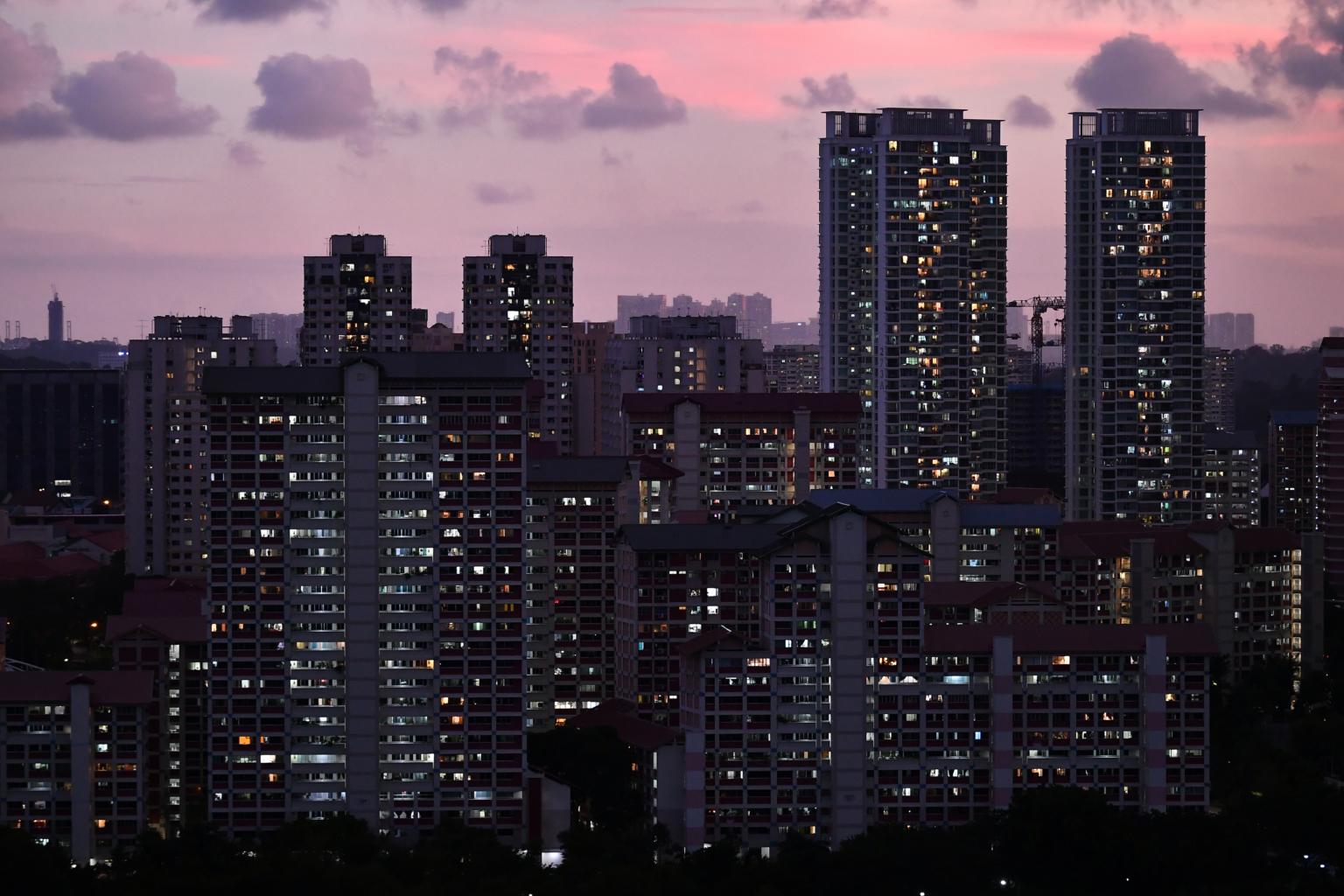askST: Why are electricity retailers shutting and what are my options if my retailer is folding?
Sign up now: Get ST's newsletters delivered to your inbox

The current quarterly household tariff stands at 25.8 cents per kilowatt-hour of electricity.
PHOTO: ST FILE
Follow topic:
SINGAPORE - Within a span of about a week, three electricity retailers have announced their exits from Singapore's open electricity market.
On Tuesday (Oct 19), the Energy Market Authority (EMA), which regulates Singapore's energy supply, announced measures to safeguard the country's electricity supply.
How are these developments linked and what does it mean for consumers? The Straits Times answers your questions.
Q: What has happened in Singapore's electricity market?
A global fuel crunch has caused the prices of natural gas to skyrocket, which has in turn led to the exit of three electricity retailers in Singapore thus far.
The current quarterly household tariff stands at 25.8 cents per kilowatt-hour (kWh) of electricity, the highest rate in almost two years since the first quarter of 2020, when the tariff was 25.9 cents per kWh.
On Oct 14, it was reported that iSwitch Energy, one of Singapore's largest independent electricity retailers, will be ceasing electricity retail operations on Nov 11 owing to "current electricity market conditions".
A day later, Ohm Energy announced its plans to cease operations in Singapore in an e-mail to customers.
Union Power said on Monday it will be scaling down its operations by closing the accounts of about 850 commercial customers.
Then on Tuesday, a third retailer announced its exit. Best Electricity said it would be leaving Singapore's electricity market, with effect from Thursday.
Also on Tuesday, EMA announced strategies to help boost the country's energy supply.
The authority said it is working with all generation companies - or gencos - to track their fuel supply levels and generating capacity. Should supplies be affected, EMA will provide standby fuel to them to ensure reliable electricity supply to consumers in Singapore.
Q: What is causing the global electricity price to spike?
A confluence of causes have sent global market prices for gas soaring: increased gas consumption from recovering economic activity, severe weather events and a series of gas production outages.
This, in turn, means that the cost of procuring gas for gencos has increased.
Q: What is the link between Singapore's power-generation companies and the electricity retailers?
The process of electricity generation and distribution involves four main players - gencos, retailers, the EMA and SP Group.
Gencos: There are seven main gencos in Singapore. These plants burn natural gas for energy, which is imported into Singapore through pipes from neighbouring countries or in a liquefied form from all over the world.
Gencos compete to sell electricity to retailers on the wholesale electricity market every half-hour.
Retailers: They buy electricity from gencos on the wholesale market and sell them to households.
Before the electricity market was opened to households in 2018, they could buy electricity only from SP Group.
But the liberalisation of the market meant more choices of retailers for consumers. Those who did not make the switch continue to purchase electricity from SP Group at the regulated tariff rate.
Similar to how travel agents buy hotel stays and flight tickets at agent rates and then bundle these into attractive packages for customers, electricity retailers do the same - they buy electricity from the wholesale electricity market and then bundle these with other perks to entice consumers, such as green plans which offset electricity with carbon credits.

To manage the volatility of cost and earnings, retailers can either make these purchases at spot prices, or purchase contracts that allow them to buy electricity in the future at pre-determined rates.
However, Mr Howie Lee, an economist at OCBC Bank, told ST earlier that it is costly for a company to hedge fully, and that small power retailers are typically underhedged compared with larger players.
He said: "Once wholesale prices soar through the roof, they normally find themselves deep in the red. In the case of Singapore, I recall many power providers urging consumers to lock in two-year fixed prices and at levels much lower than what the current tariff is. I can imagine how painful it must be for them now and am not surprised some have exited."
EMA: The authority ensures a reliable and secure energy supply, and promotes effective competition in the energy market.
SP Group: The utility company is regulated by EMA. Besides being the default electricity retailer, it is Singapore's national grid operator and delivers electricity to consumers from gencos.
The folding of iSwitch Energy, Ohm Energy and Best Electricity can be attributed to the retailers' inability to keep up with the soaring prices of natural gas. They are no longer able to buy electricity from gencos and sell them to consumers in an economically sustainable manner.
Q: I have an existing deal with one of the retailers which exited. Am I at risk of losing my electricity supply?
No. Besides being the national grid operator, SP Group is the retailer of last resort.
Consumers who have contracts with retailers that have exited will be transferred to SP Group, which will charge for electricity at the regulated tariff rate. It will not take over the current contract terms that consumers have with the exiting retailers.
Q. How many retailers remain, and what are my options after I have been transferred back to SP Group?
Besides SP Group, nine retailers remain after the recent exits.
As at April 30, about 51 per cent of residential consumers purchased electricity from SP Group.
Of the remaining residential consumers, Keppel Electric serviced 22.1 per cent, Geneco 19.9 per cent, Tuas Power 15.5 per cent, and Sembcorp Power 8.9 per cent.
The exiting iSwitch Energy held about 13.1 per cent of the market share.
The remaining retailers, which include the exiting Ohm Energy and Best Electricity, held about 20.5 per cent of the market share. They are: Diamond Electric, PacificLight Energy, Senoko Energy, Sunseap Energy and Union Power.
Six of the retailers are linked to gencos - Keppel Electric, Geneco, Tuas Power, Sembcorp Power, PacificLight and Senoko Energy.
Customers who are transferred to SP Services can subsequently choose to switch to another retailer of their choice at any time.
A full list of frequently asked questions by affected customers is available at this website.

